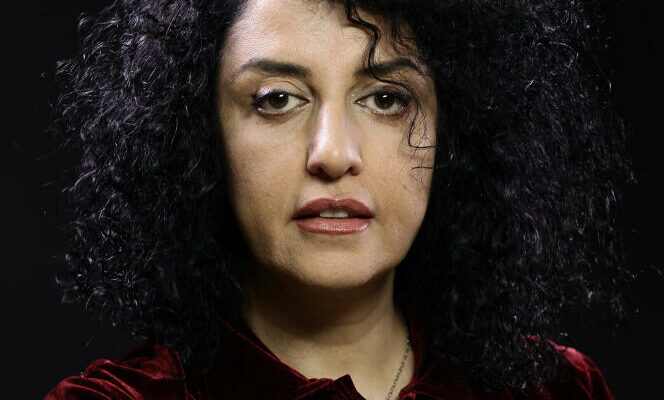Around “White Torture”, by the Iranian Nobel Peace Prize winner Narges Mohammadi
Iranian Narges Mohammadi, 2023 Nobel Peace Prize winner, is currently serving a twelve-year sentence in Evin prison in Tehran. For her fellow inmates, she has always been a source of inspiration: intelligent, determined and lively, even in the darkest moments. On the occasion of the release of his book White torture in France, “Le Monde des livres” was able to send him questions through a clandestine network of activists. We received his responses two weeks later. Here they are.
Why did you decide to write “White Torture”?
I experienced the solitary confinement cell four times. I consider the practice of “white torture”, that is to say incarceration in solitary confinement by the government, to be unjust and brutal. The solitary confinement cell is the “mother” of all executions in Iran. As part of my activities in the field of human rights and against the death penalty, I learned that many executed people, subjected to the physical, mental and psychological torture of incarceration in solitary cells, complied to false confessions, which then constituted, in a completely illegal manner, the basis of their death sentence.
White torture is unknown to Iranian society and many human rights circles, whereas, for authoritarian and oppressive governments such as the Iranian regime, it is a means of pressure against opponents. They make intensive use of it, since this kind of torture leaves no visible trace. Many victims of solitary confinement are unaware that, being frightening and inhumane, it indeed constitutes a form of torture. Documenting it is a step towards justice, the abolition of torture, the death penalty and forced and false confessions, as well as an attempt to limit the means of oppression against activists and opponents.
What has changed for you since the Nobel Prize was awarded to you on October 6, 2023? In your opinion, what impact do these kinds of international awards have on the struggle for democracy in Iran?
Pressure from security services and judicial authorities has increased. Since November 29, I have been deprived of telephone calls and visits. A ban which has just been extended because of the letter I recently sent to Antonio Guterres, the Secretary General of the United Nations, asking him to criminalize gender apartheid. To this day, I have not even been able to get the story of the Nobel Prize ceremony from my family. [le 10 décembre 2023, à Oslo]. After I received this prize, the revolutionary tribunal pronounced a new sentence against me in January, in my absence.
You have 71.07% of this article left to read. The rest is reserved for subscribers.
